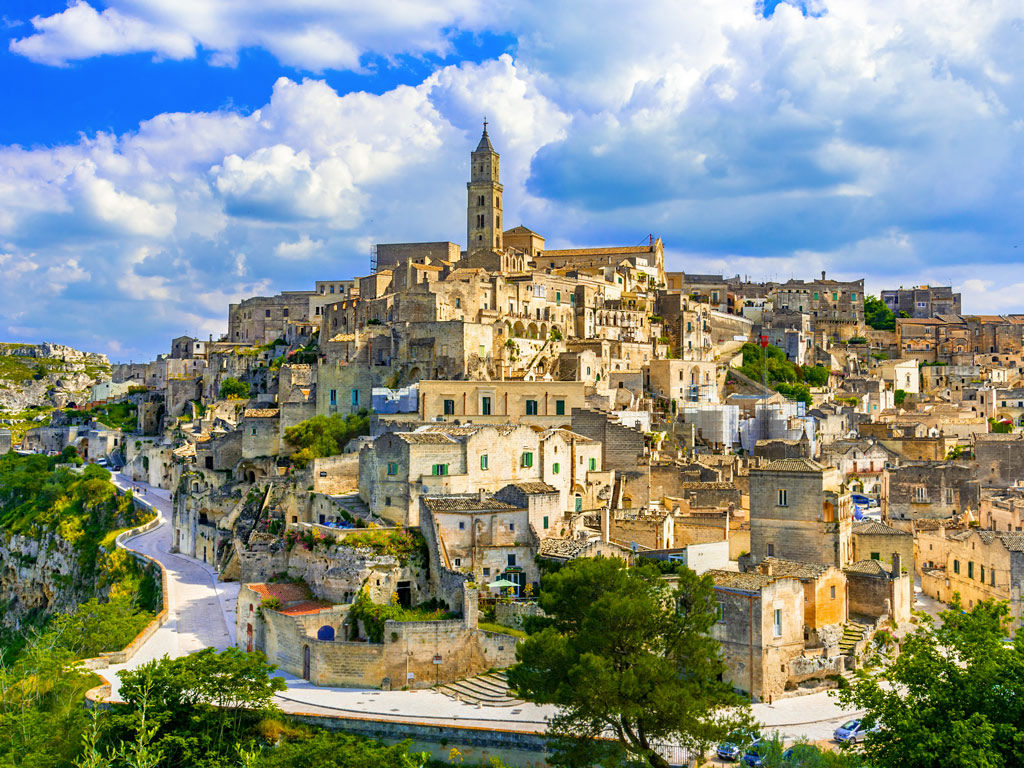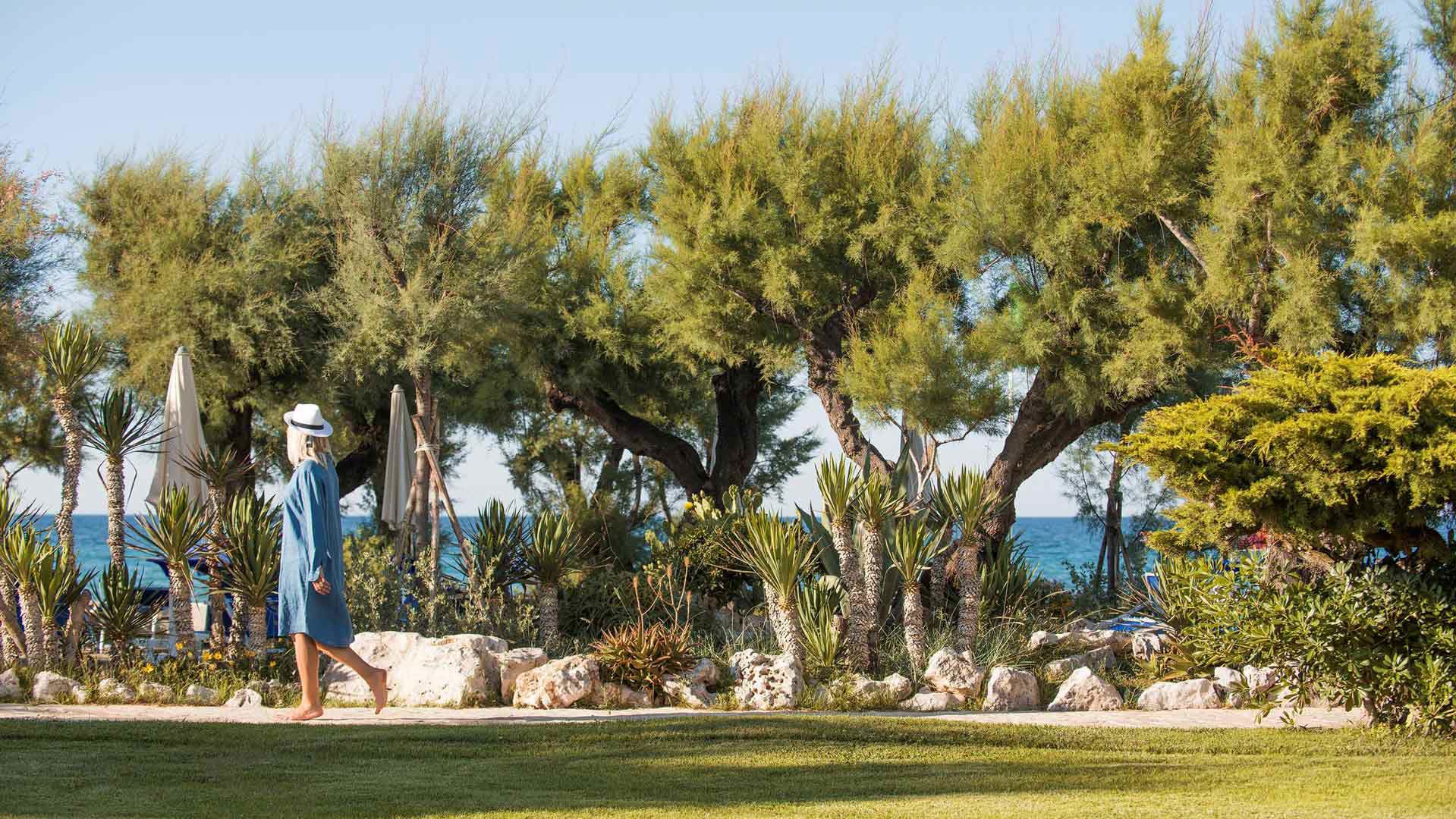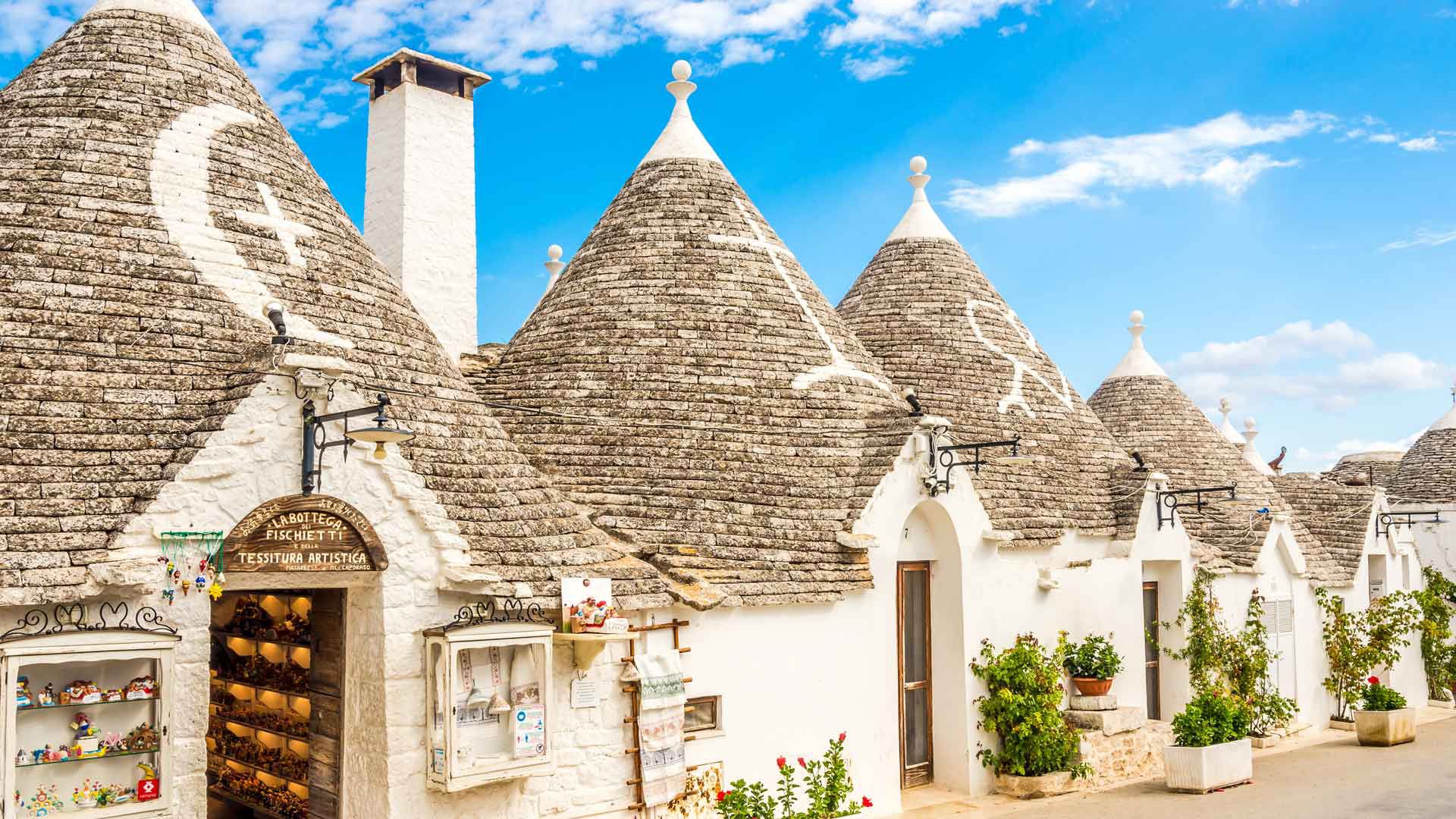
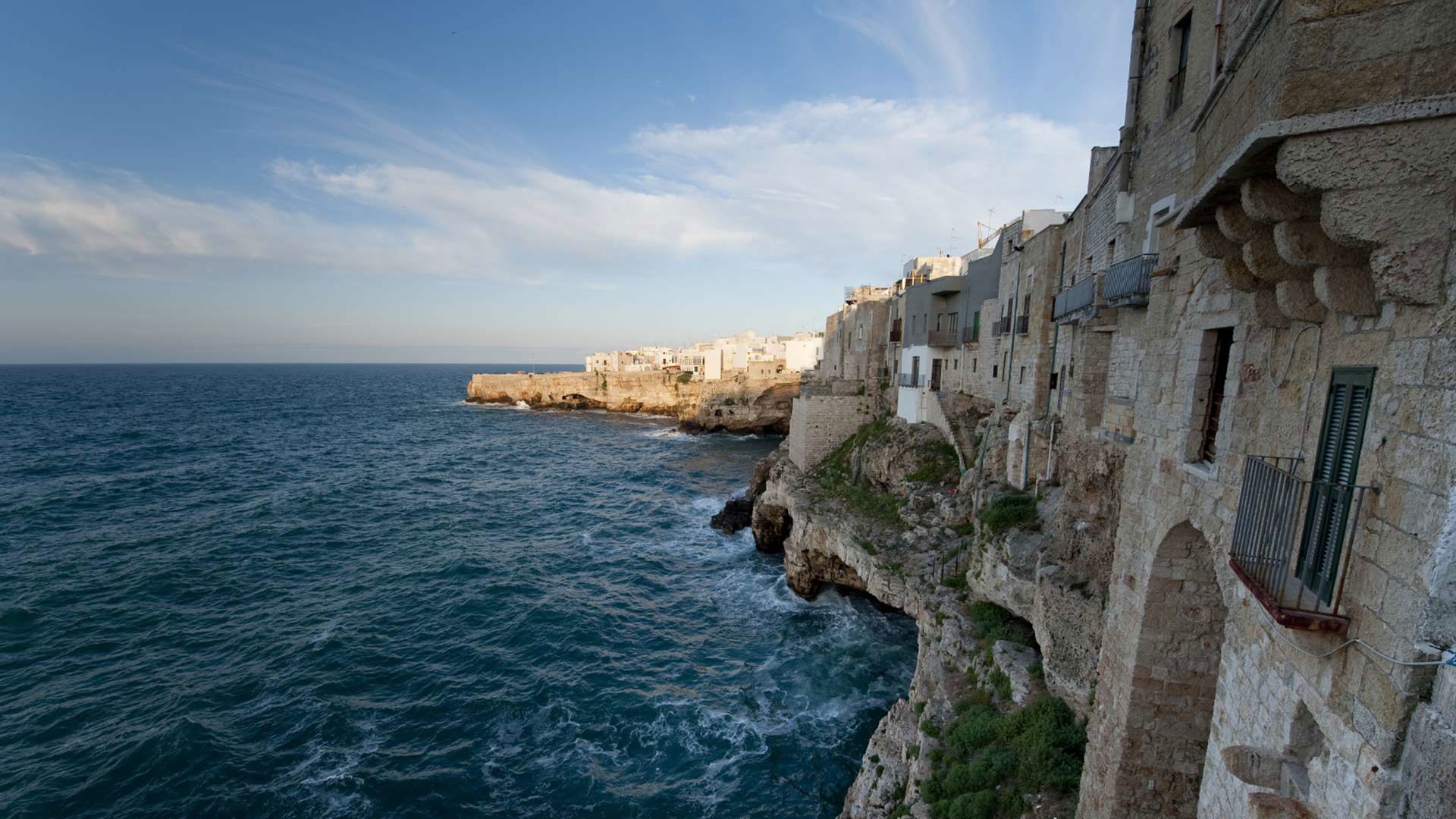
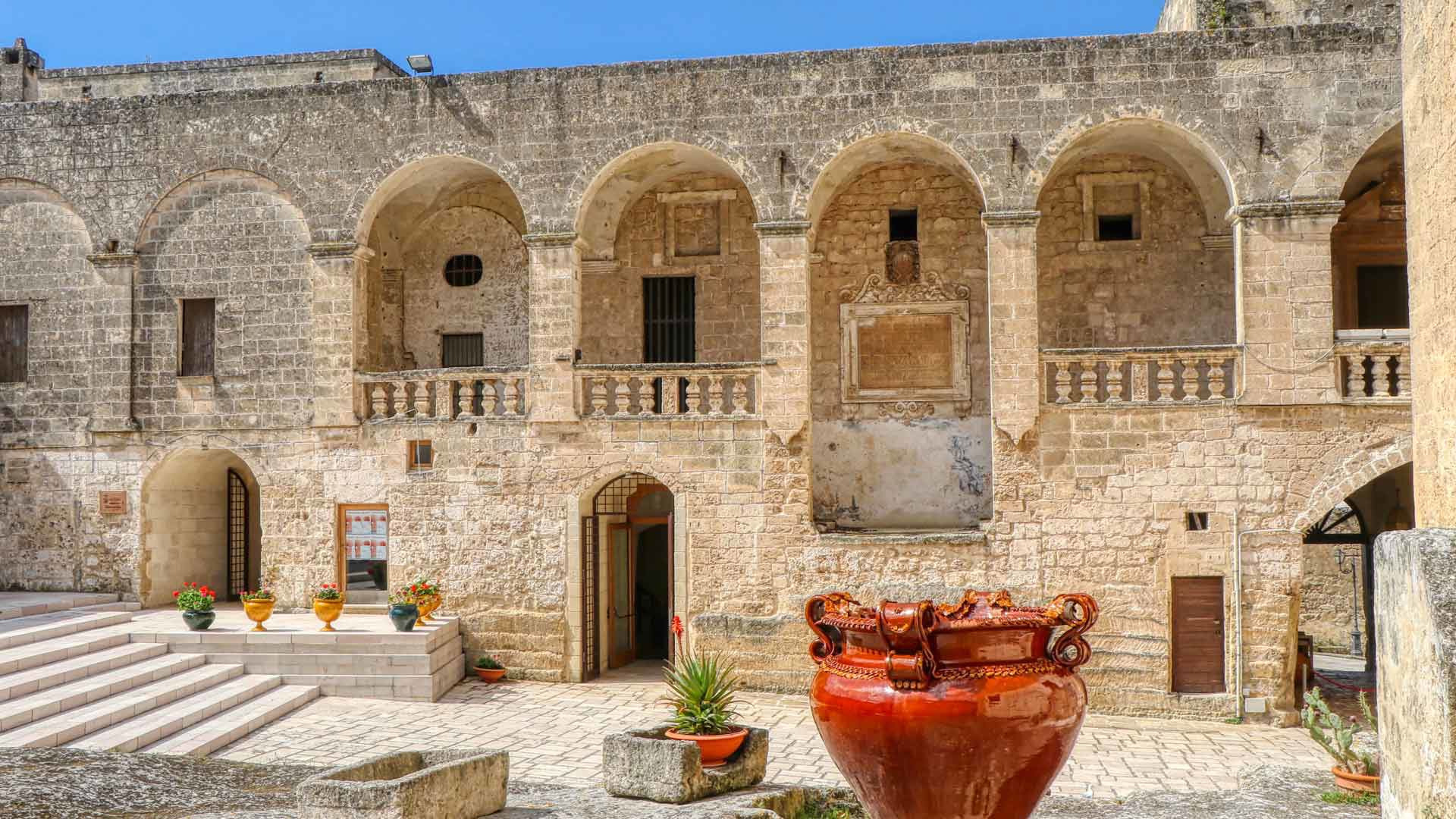
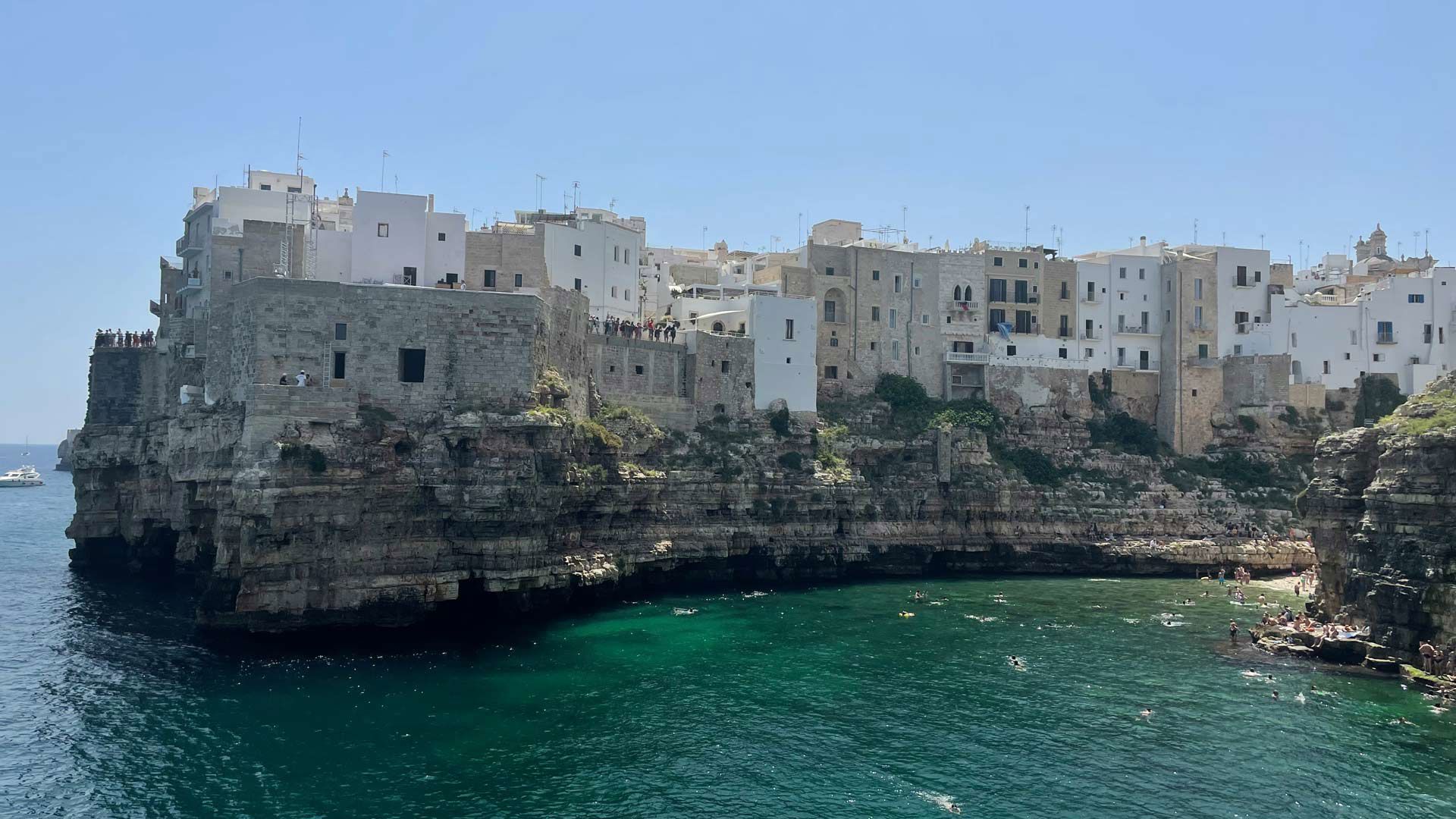
Places to Visit
Castel del Monte
Castel del Monte stands alone up on a hill in the Apulian Murgia area and it is the most famous monument of the era of Emperor Frederick II of Swabia. Castel del Monte has a unique octagonal layout, in the centre of which there is an octagonal courtyard that is thought to have originally been occupied by a swimming pool. In the corners of the polygon, there are eight constructions, also octagonal, which look like towers but are no higher than the body of the castle. From a distance, the building looks like a crown.
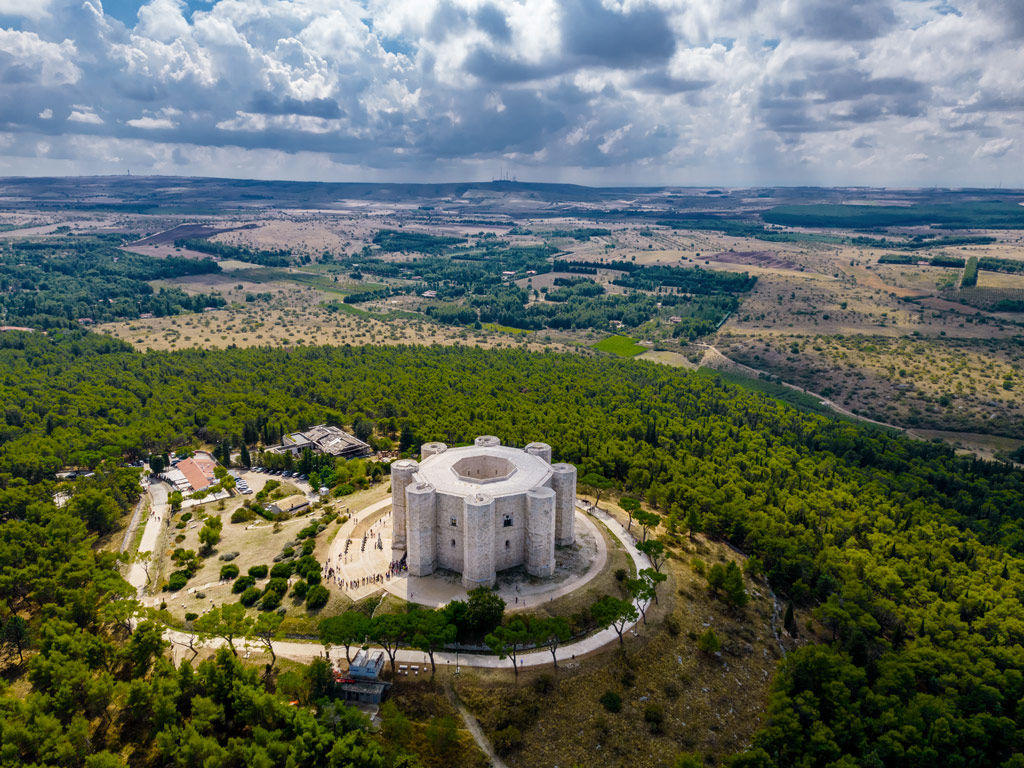
Trani
The churches, buildings and gardens of the Old Town overlook the transparent, calm waters. The town stretches into a strip of land between the body of the Swabian Castle and the port. Facing the sea, next to the extremely tall Bell Tower, stands the Cathedral of San Nicola Pellegrino. It is undoubtedly one of the most beautiful Romanesque churches in the region and one of the most evocative in Italy. We recommend eating at the tiny restaurant “Caffè Nautico”, Tel. 0883.583030. We also suggest you buy the famous raisin wine "Moscato di Trani", as the owner of “Caffè nautico” makes an excellent homemade version.
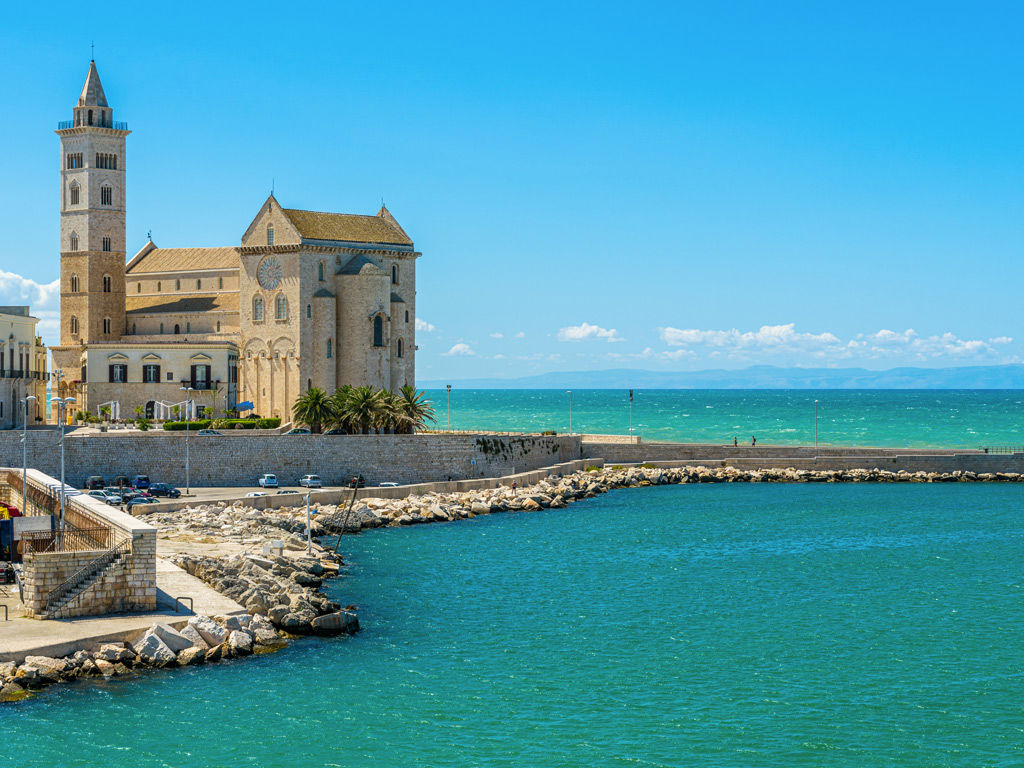
Bari
The visit starts at the Castle, moving into the Old Town or historic centre, around which Corso De Tullio runs along the new port, and the Imperatore Augusto waterfront.
Discover more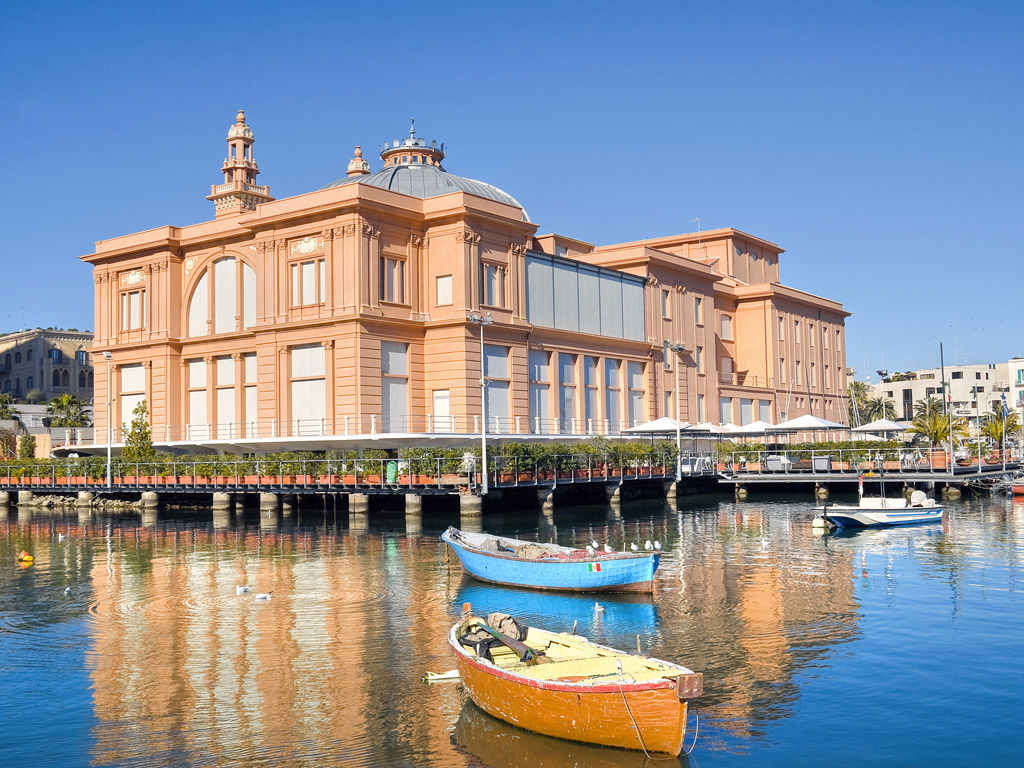
Polignano a Mare
Polignano stands on the top of a rocky ridge overlooking the sea. The cliff is full of natural coves and marine caves.
Discover more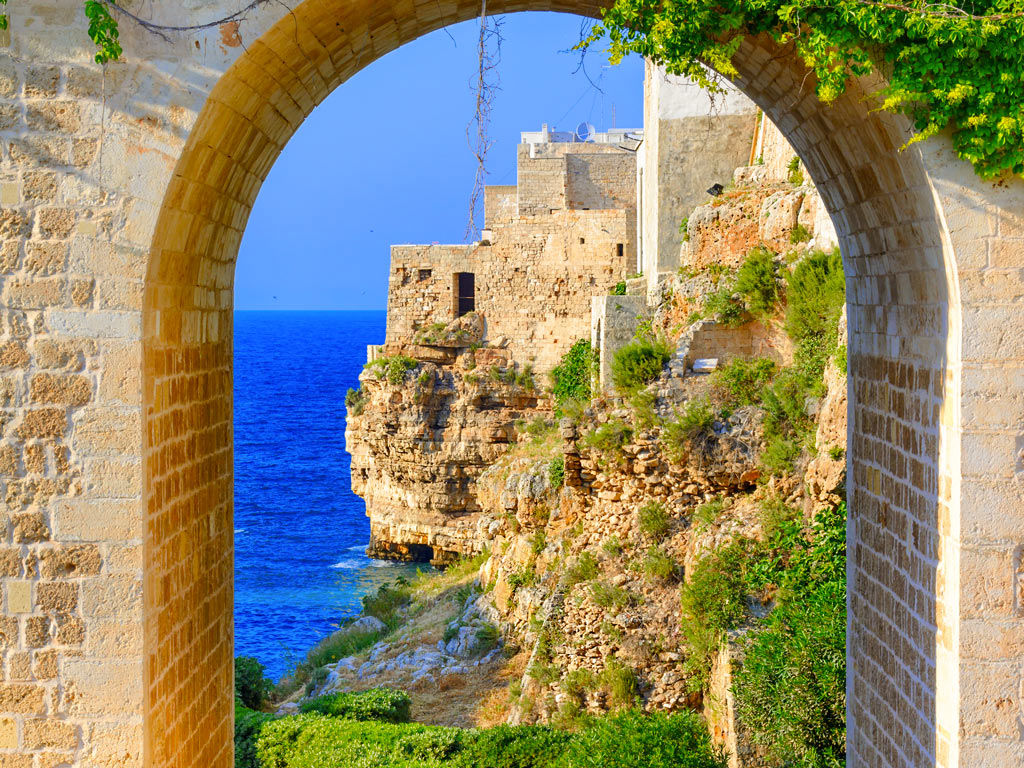
Castellana Grotte
The visit to the caves begins with by going down an undemanding flight of steps to the first huge cavern. A natural quadrangular skylight lights up the Grave with sunlight. This is an immense pantheon that starts the underground tour, while immediately afterwards you enter the Black Cave.
Discover more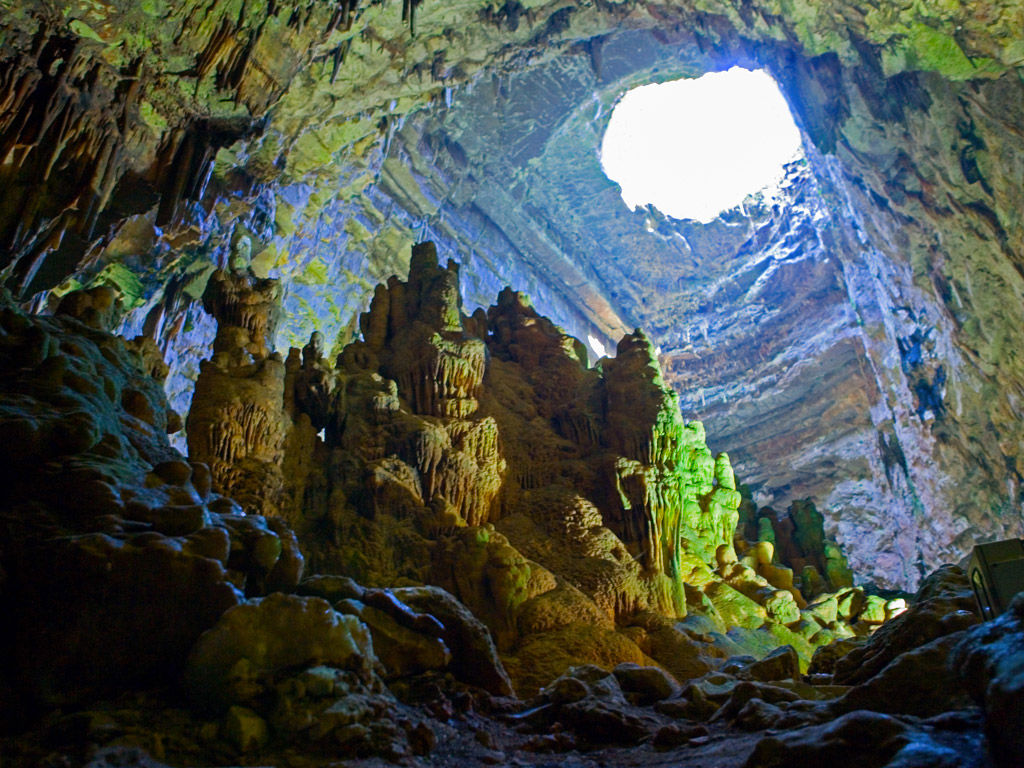
Alberobello
Alberobello, known worldwide for its distinctive conical-shaped trulli dwellings, is divided into two districts: Monti and Aia Piccola, both National Monuments and world heritage sites recognised by UNESCO.
Discover more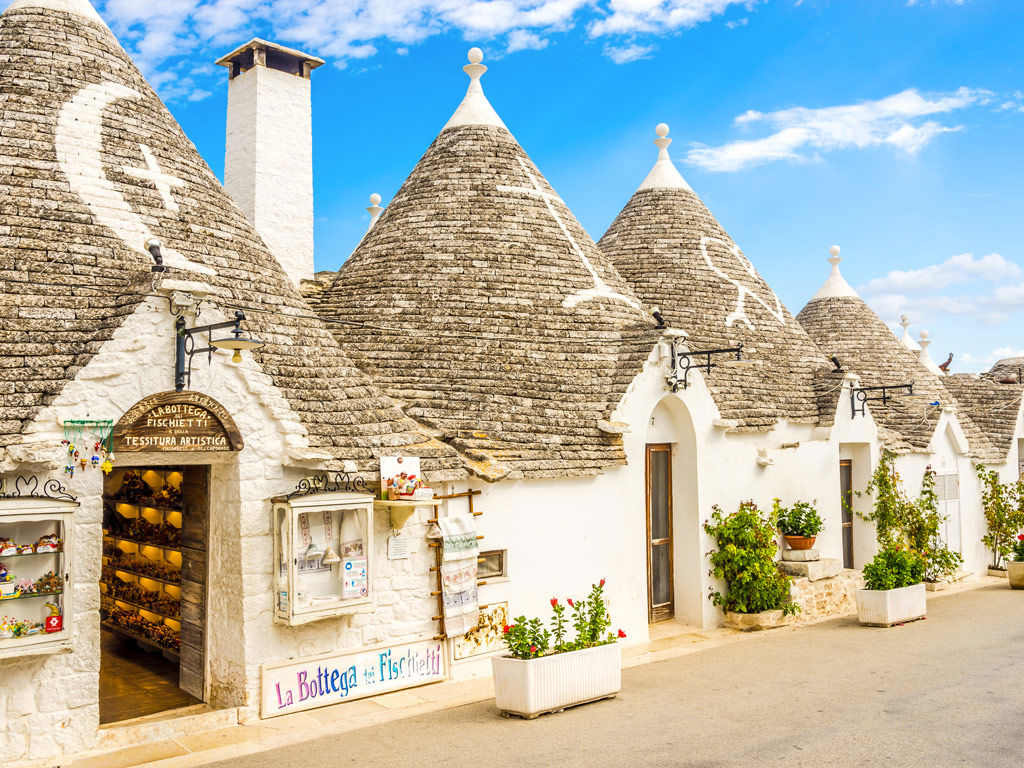
Monopoli
The crypts and the rock villages of worship deserve a visit. The Castle of Charles V in Monopoli has a pentagonal layout with towers at the top and it contains various treasures.
Discover more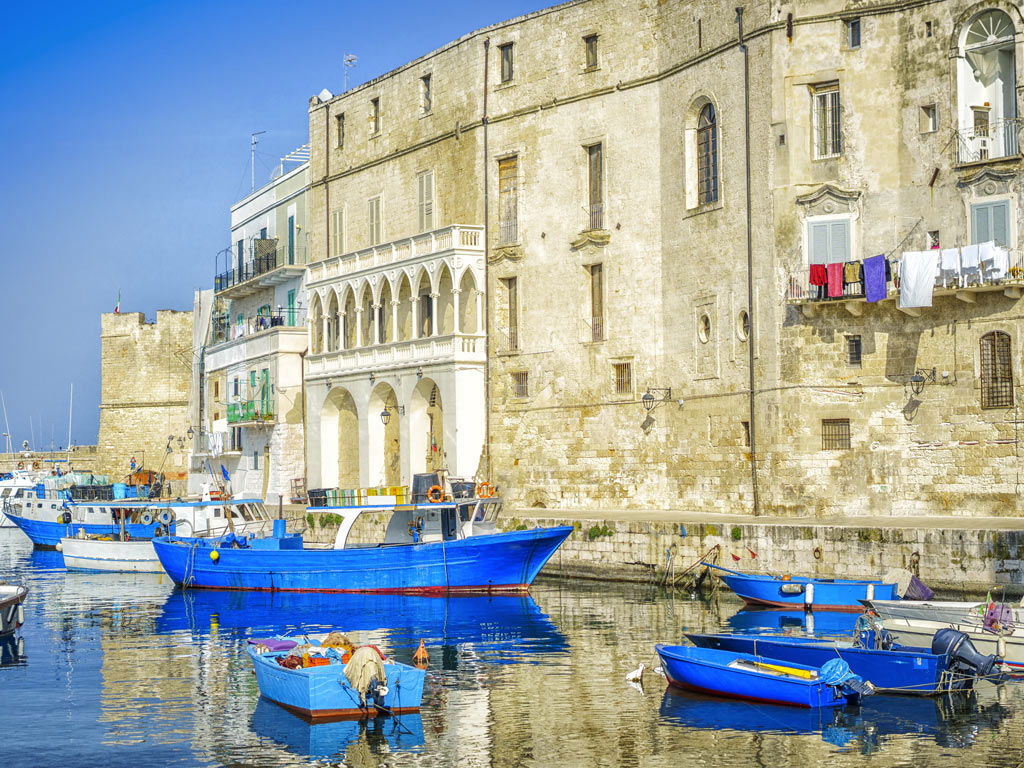
Selva di Fasano
Selva di Fasano is a holiday resort famous for its amazing panoramic position known as "Italy’s balcony to the East" from which you can also admire the Itria valley to the west and the Adriatic Coast to the east. The landscape is dotted with centuries-old olive trees and the ancient picturesque stone constructions, the famous Trulli. Various possibilities for having fun are offered by the nearby “SAFARI PARK”, where you can visit the biggest wildlife park in Italy. Trattoria la Siesta: traditional, high-quality food Tel. 080.4331217
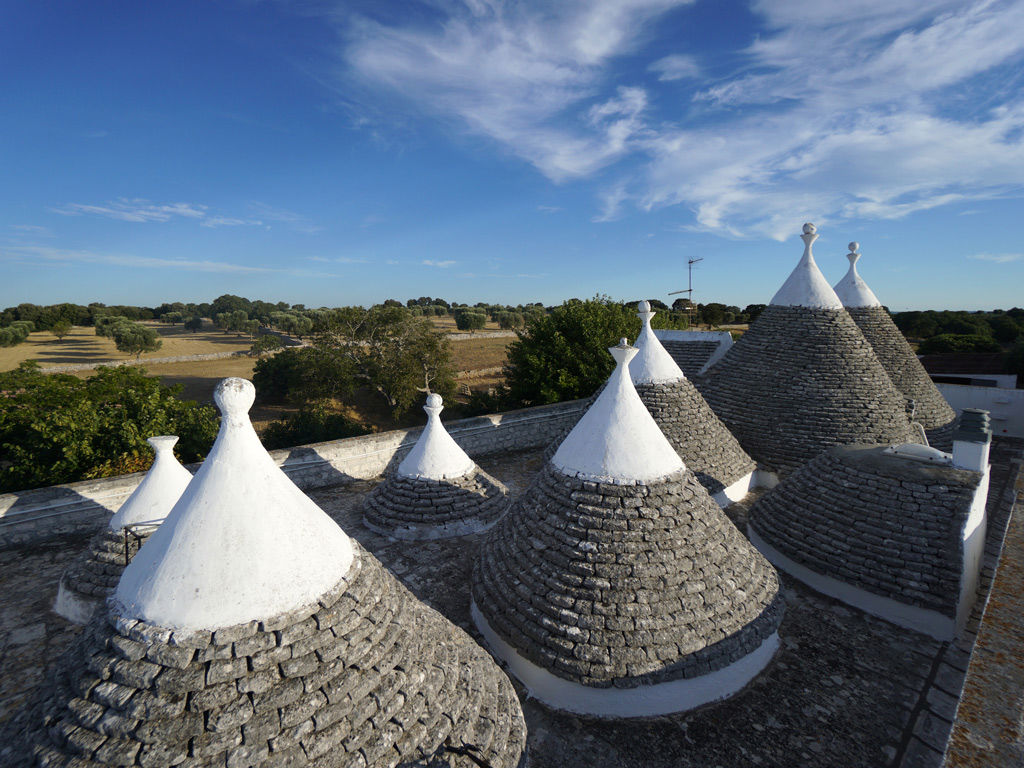
Torre Canne
Torre Canne is a small fishing village that comes alive in the summer, becoming a well-equipped, busy seaside resort that offers excellent hospitality and a magnificent sandy beach.
Torre Canne is also a well-known spa resort, with the springs of Torricella and Antesana, where the waters are consumed for treating ailments linked to the liver, the biliary tract and uricemia.
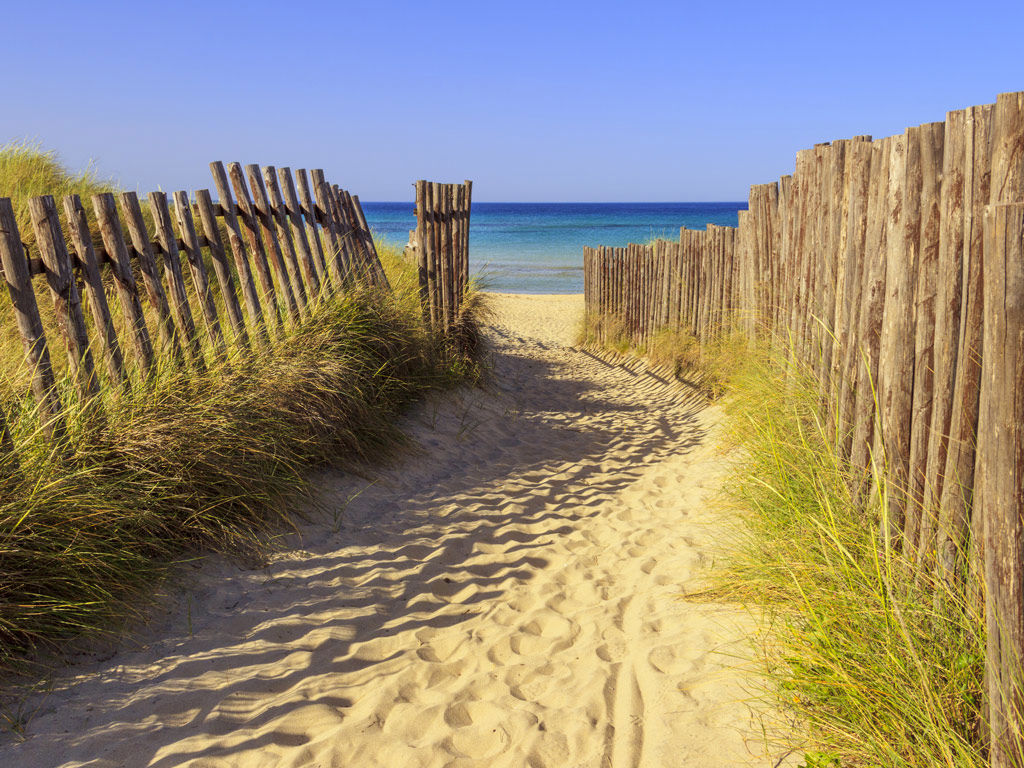
Martina Franca
When walking through the old town, even without a specific destination or itinerary, at every turn an in every alley you will see new and captivating views, unexpectedly elegant or authentically simple baroque elements and the scents of old and new.
Discover more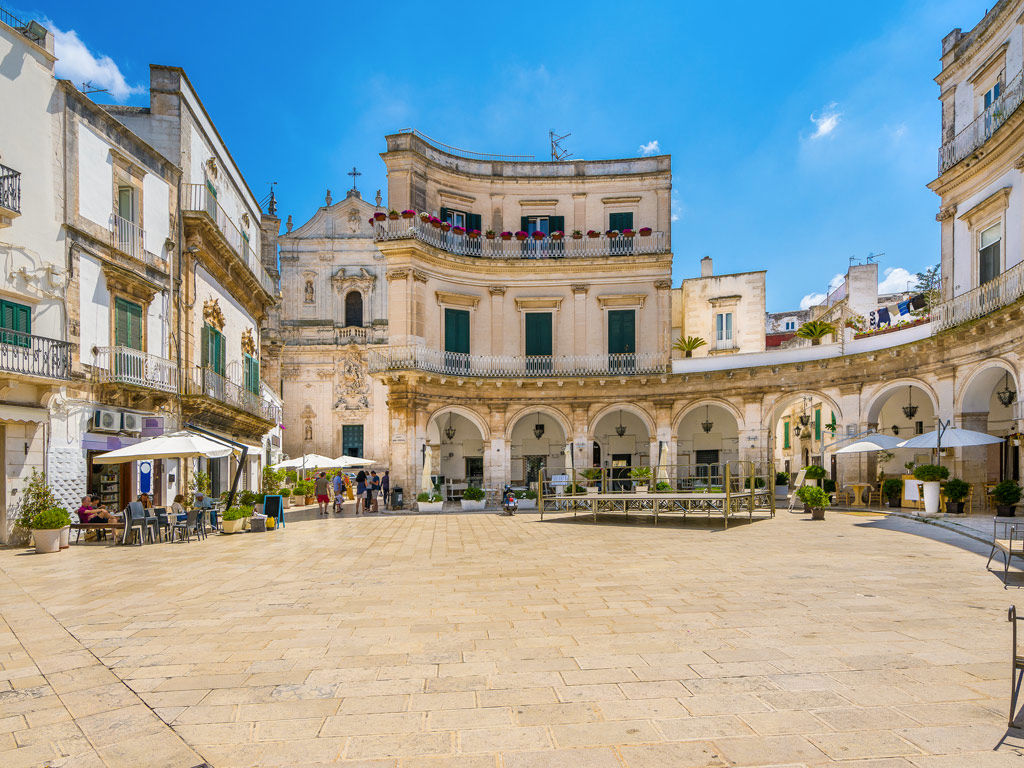
Ostuni
Nicknamed the White City with its medieval village called "terra". Departure is from the spacious and triangular Piazza Libertà, where you will find the Town Hall, the Church of San Francesco, the Obelisk of Sant'Oronzo and the Church of the Holy Spirit.
Discover more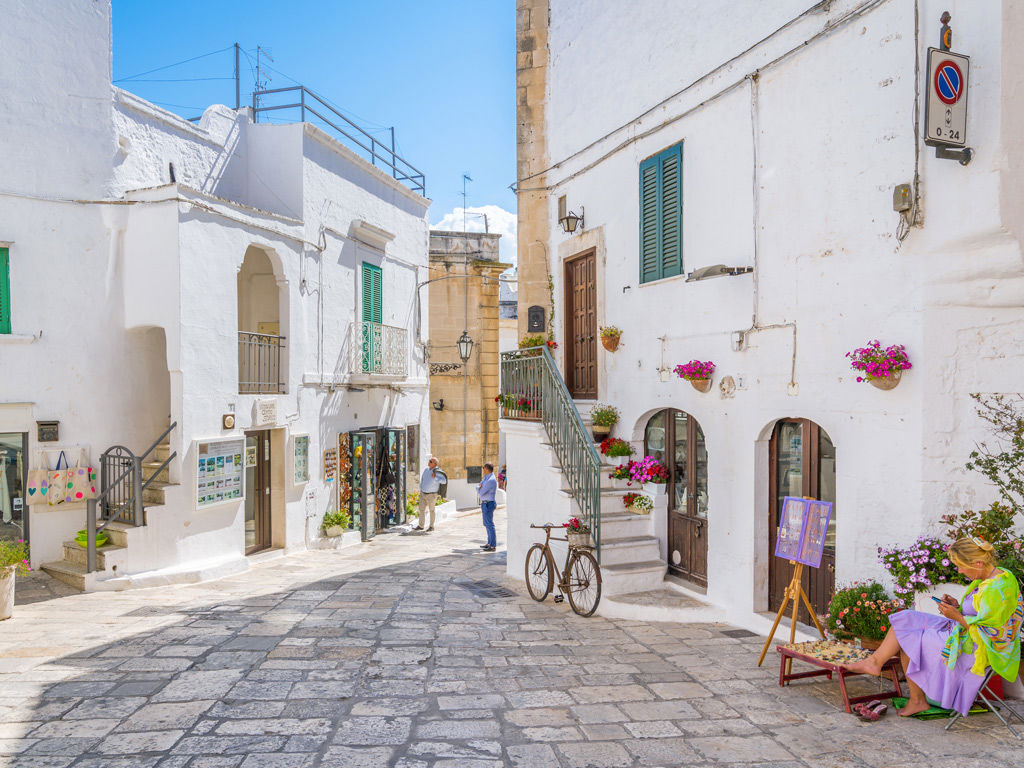
Grottaglie
It was the abundance of clay in the area that favoured the initial development of artisan crafts, dating back to the Classical and Magna Graecia age.
Discover more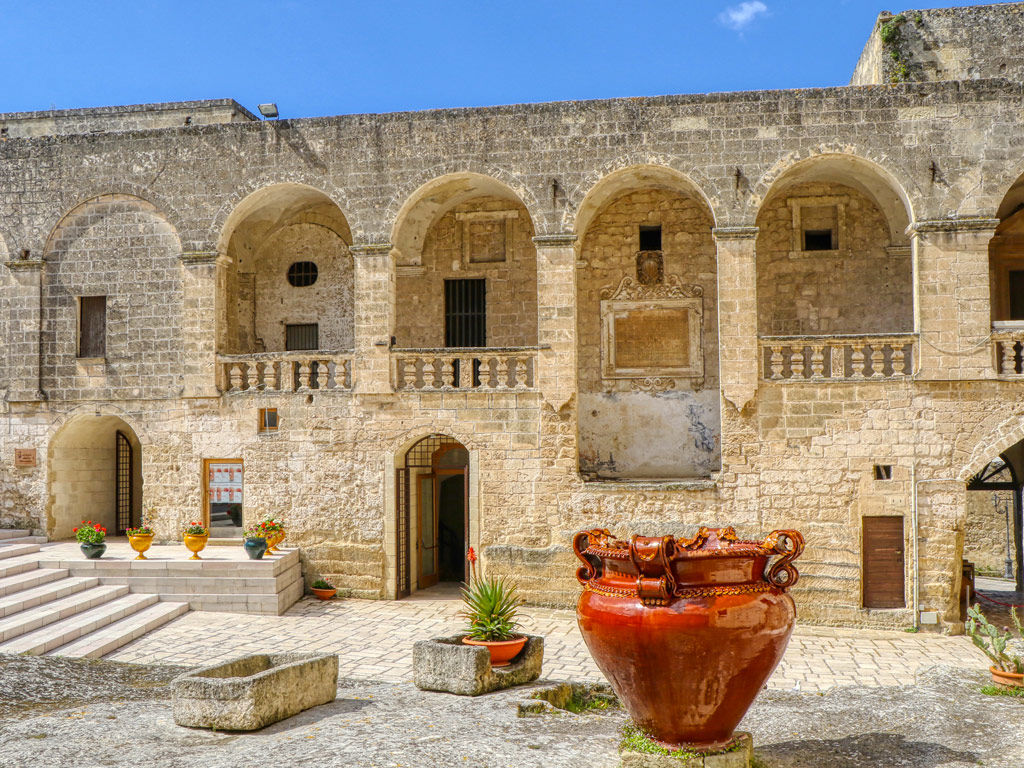
Taranto
The Archaeological Museum of Taranto is a place of exceptional beauty and has a great novelty: the Salone degli Ori (Hall of Gold). A collection presented during travelling exhibitions in different parts of the world.
Among the jewels from Taranto, the most remarkable pieces are the gold-leaf tiaras, resembling laurel or oak leaves. In addition to the gold and silverware, a substantial part of the Taranto museum is dedicated to ceramics, mostly from excavations carried out in the town.
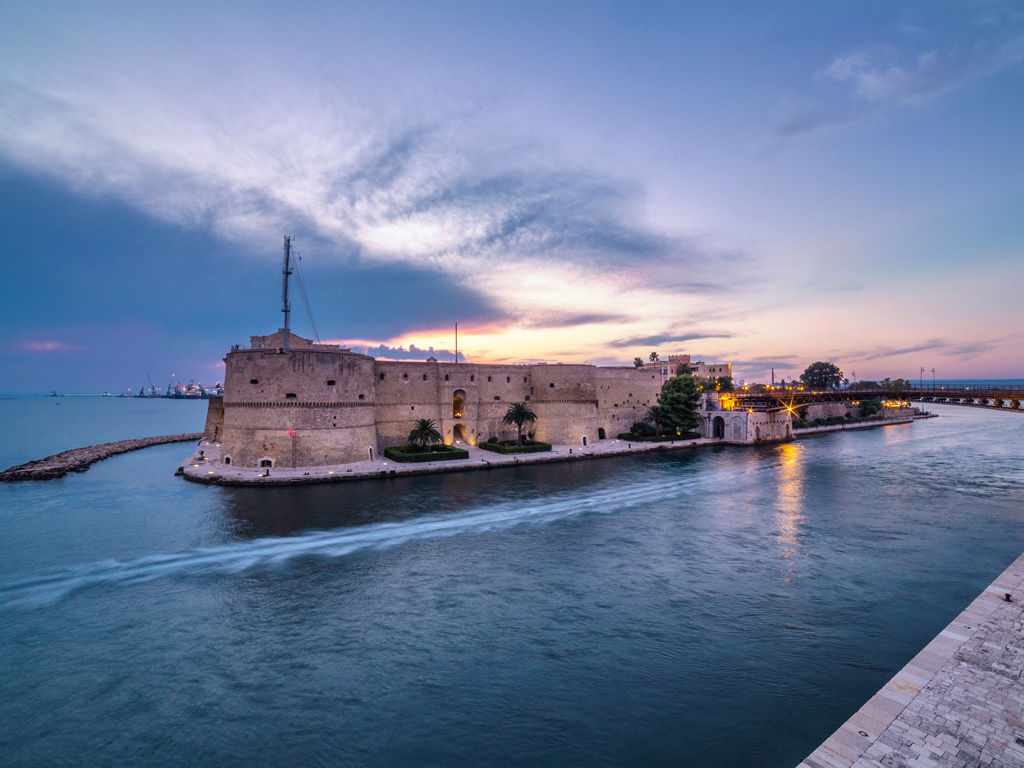
Brindisi
In the historic centre of Brindisi, in Piazza Duomo (Cathedral Square), next to the ancient portico of the Hospital of the Knights of Jerusalem, there is the Provincial Archaeological Museum named after Francesco Ribezzo, an academic who studied the Messapian civilisation. Inside, the epigraphic collection, including statues of figures in togas and armour is worth visiting, along with the antiques section.
La Bohème, Via Fermi 42, industrial area. Antiques shop.
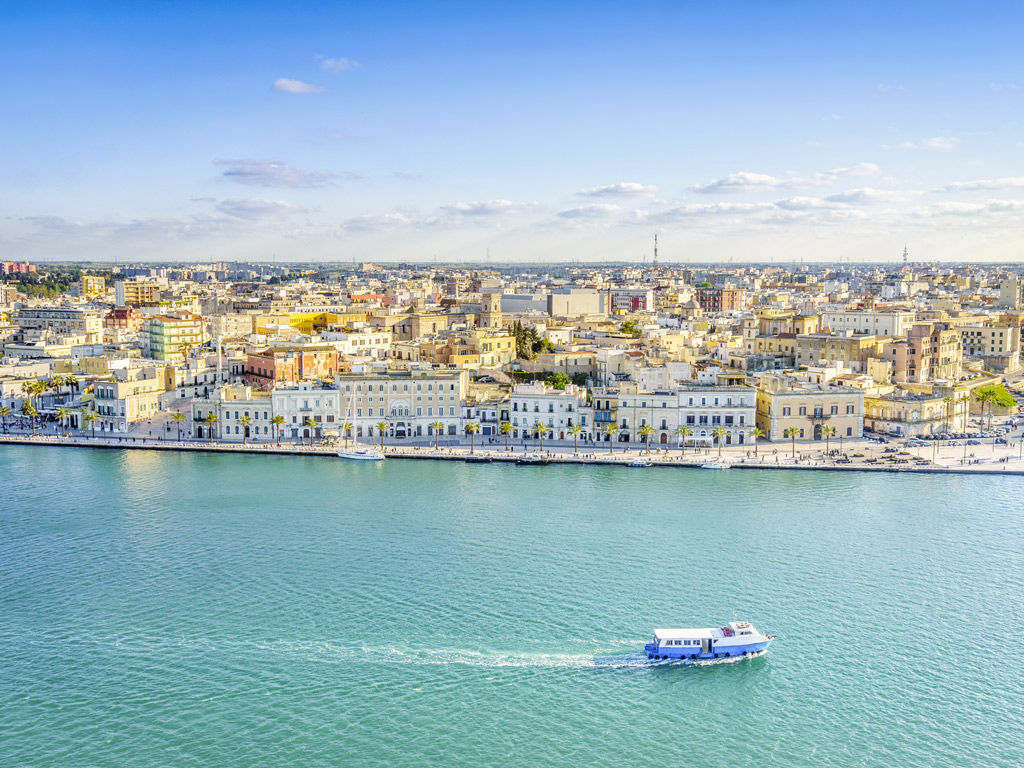
Lecce
Its very ancient Messapian origins and the archaeological remains dating back to Roman domination are, in fact, mixed with the typical rich and exuberant seventeenth-century Baroque style of the churches and buildings in the town centre. An example of this is the splendid Piazza del Duomo, where you will see the Duomo or Cathedral of Santa Maria Assunta-the Episcopal Palace and the Palace of the Seminary.
Like many southern Italian cities, Lecce boasts numerous forms of evening entertainment, from music to theatre, enlivened by a rich social life above all frequented by young people attending the well-known University.
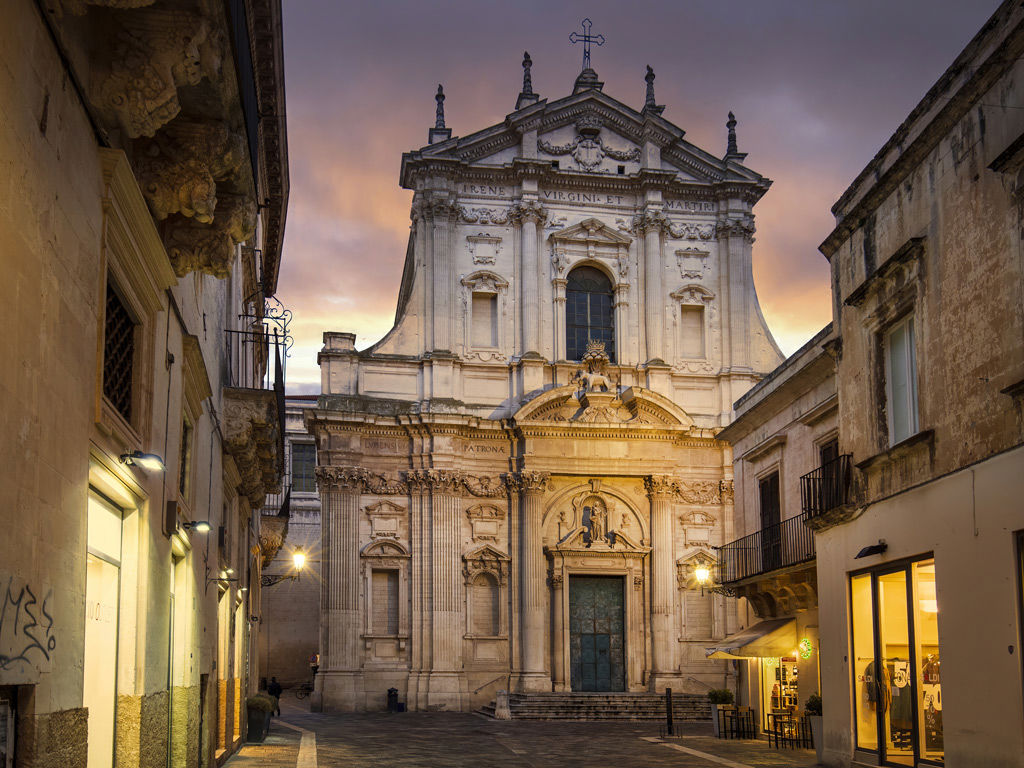
Matera
Matera is famous for its exceptional historic centre and particularly for its most distinctive districts, Sasso "Caveoso" and Sasso "Barisano", today referred to as the Sassi of Matera, included by UNESCO in its list of World Heritage Sites. Over the centuries, the houses of Sasso Caveoso on the extreme southern edge of the town have been used more and more as cellars for producing and storing wine.
In the Civita, the oldest part of the town, Piazza Duomo and the buildings looking out onto Piazza Duomo, including Palazzo Gattini and Palazzo della Curia are worth visiting.
